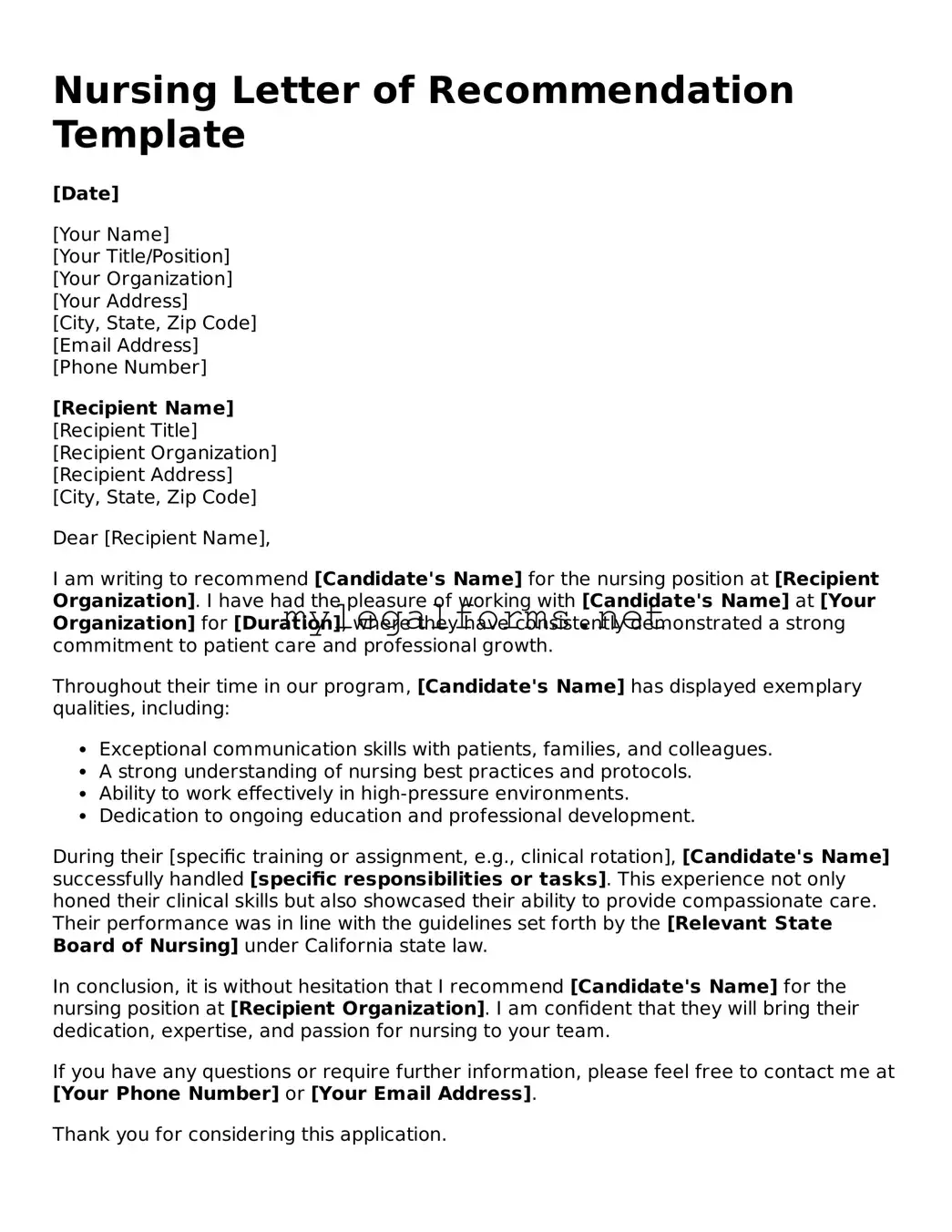Attorney-Approved Nursing Letter of Recommendation Form
The Nursing Letter of Recommendation form is a crucial document that supports a nursing candidate's application by providing insights into their skills, character, and experiences. This form is typically completed by a mentor, supervisor, or educator who can attest to the applicant's qualifications and potential in the nursing field. A well-crafted letter can significantly enhance an applicant's chances of securing a position in a competitive environment.
Launch Nursing Letter of Recommendation Editor

Attorney-Approved Nursing Letter of Recommendation Form
Launch Nursing Letter of Recommendation Editor

Launch Nursing Letter of Recommendation Editor
or
⇓ PDF Form
Complete the form at your pace — fast
Finish your Nursing Letter of Recommendation online and download the final version.